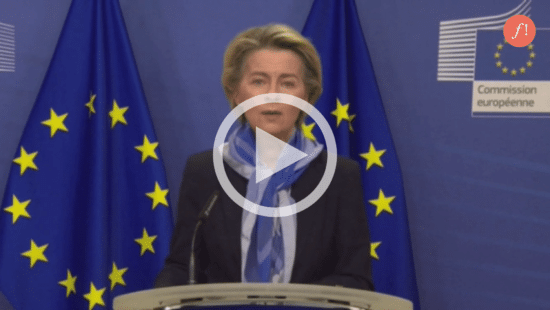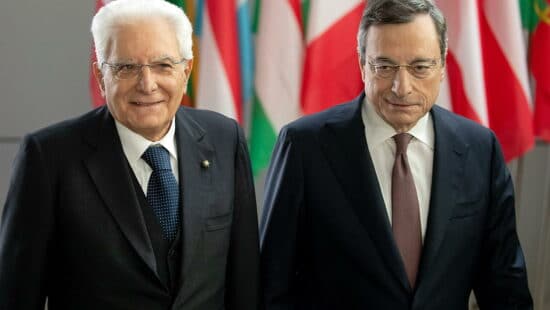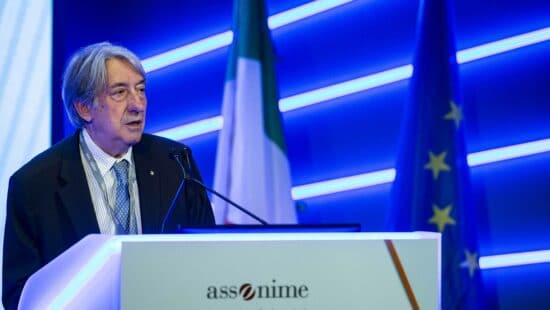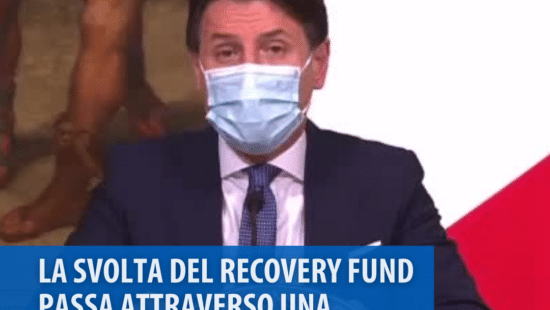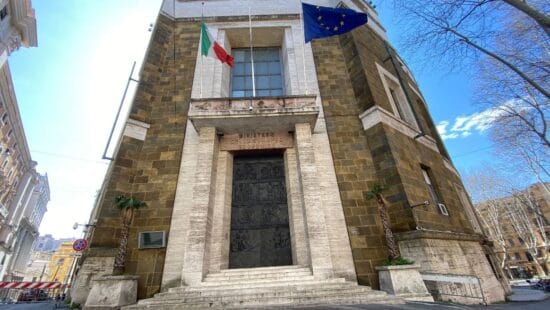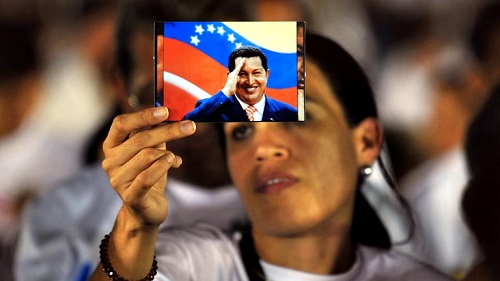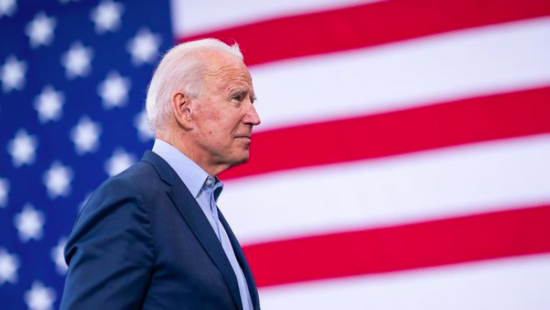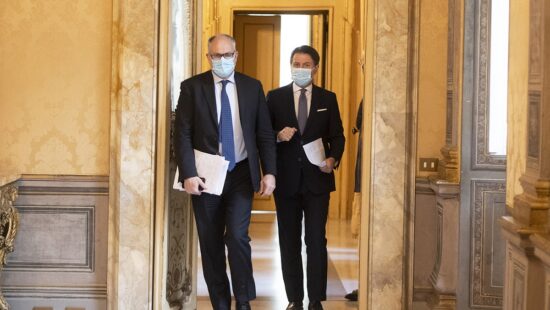Ue autorizza vaccino Pfizer-BioNTech, vaccinazioni dopo i 16 anni [embedyt] https://www.youtube.com/watch?v=fKkLmgsWDKk[/embedyt] Bruxelles, 22 dic. (askanews) - L'Unione europea ha autorizzato la distribuzione del vaccino anti-Covid di Pfizer-BioNtech, qualche ora dopo il via libera dell'Ema, l'agenzia europea per i medicinali. "Abbiamo concesso l'autorizzazione in commercio del vaccino prodotto da BionTech e Pfizer - ha detto la presidente della Commissione Ue, Ursula…
Archivi
Draghi? Al Quirinale. Parla Macaluso
“È un amico, una persona seria. Su di lui tutte illazioni”. Emanuele Macaluso, storico volto del Pci e direttore dell’Unità, vedrebbe bene Mario Draghi al Quirinale, “nessuno come lui è riconosciuto all’estero”. Il governo? Regge, non ha alternative. Quella di Renzi è tutta scena
Le imprese zombie sono un problema. Ma la soluzione c'è. Parla Cipolletta
Intervista al presidente di Assonime: nel 2021 tante imprese non saranno in grado di stare sulle proprie gambe, su questo Draghi ha ragione. Per evitare una valanga di insolvenze serve ricapitalizzare le aziende con un Fondo alimentato da capitali pubblici e privati. Conte? Nessuno vuole una crisi di governo e poi in giro non vedo grandi alternative
Pensare oltre e Agire veloce: ecco perché solo così si salverà l'Italia
Pensare oltre e Agire veloce di Gabriele Ferrieri (Rubbettino Editore) è un pamphlet che nasce dall’esigenza di mettere in luce tutte le inefficienze del sistema Italia, da un lato, e quanto di positivo e soprattutto di innovativo c’è, dall’altro, nel nostro Paese. Innovarsi. Una parola spesso usata (e abusata) da accettare nella sua accezione più vera e tradizionale: entrare nel…
La svolta del Recovery Fund passa attraverso una migliore capacità di spesa. La scheda video di Rosario Cerra
La svolta del Recovery Fund passa attraverso una migliore capacità di spesa [embedyt] https://www.youtube.com/watch?v=jaxAPTGWC1c[/embedyt] La bozza del Piano Nazionale italiano per la Ripresa e Resilienza (PNRR) presentata dal Presidente del Consiglio Conte ripropone il modello di Stato imprenditore in grado di disintermediare i privati (cittadini, imprese, anche terzo settore). Posto che il governo debba agevolare i privati e le imprese…
Agevolazioni per chi investe in startup, un miraggio che pesa
Cresce il malcontento per gli annunci legislativi “spot” inerenti a nuove detrazioni che, a causa del vincolo alla disciplina europea o ai decreti attuativi, probabilmente non troveranno reale applicazione nel breve periodo disattendendo le aspettative dei tax planning e alimentando un generale senso di sfiducia. L’analisi di Mario Venezia, professore di Economia aziendale presso La Sapienza
Chi è, e cosa ha fatto, l'infermiera (prestanome?) di Chávez ricercata dagli Usa
Nuove accuse del Dipartimento di Giustizia americano contro Claudia Patricia Díaz Guillén, l’infermiera personale dell’ex presidente venezuelano, che però non piace a Maduro…
Accordo fra Ue e Cina? Biden sbuffa e avvisa Bruxelles...
Dopo l’accelerazione imposta da Merkel e Macron, Jake Sullivan, consigliere di Biden, entra a gamba tesa sui negoziati Ue-Cina: servono consultazioni con i partner oltre l’Atlantico
La telefonata di Navalny, Putin e l'intelligence indebolita
Alexei Navalny, il più importante esponente della lotta alla corruzione e dell’opposizione politica al Cremlino si è fatto riprendere mentre cercava di contattare alcuni dei suoi presunti aguzzini. Vladimir Putin sa perfettamente che i suoi servizi hanno perso smalto, non si muovono più così segretamente e spesso compiono errori grossolani
Manovra e Recovery Fund, tra confusioni ed equivoci. L'analisi di Scandizzo
Mentre si può capire il realismo delle scelte del governo nella stima di interventi aggiuntivi, la mancanza di ambizione nei programmi e progetti previsti fin da questa fase minaccia di tradursi in un boomerang micidiale anche in termini di effetto annuncio. L’analisi di Pasquale Lucio Scandizzo




